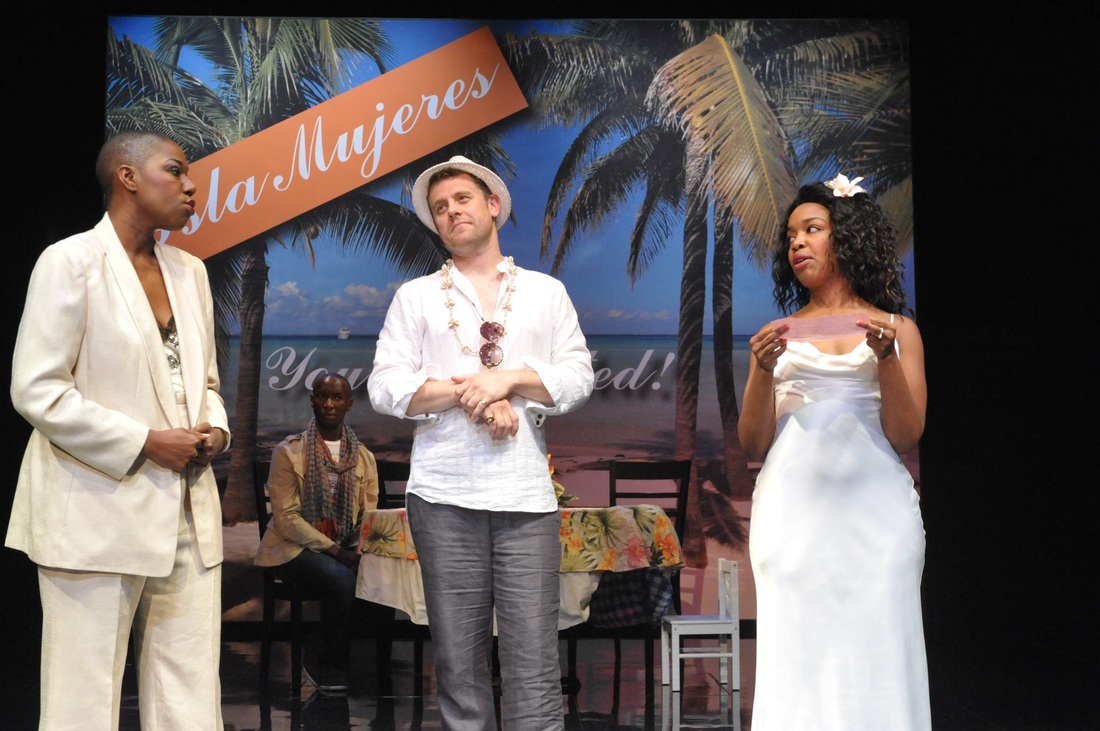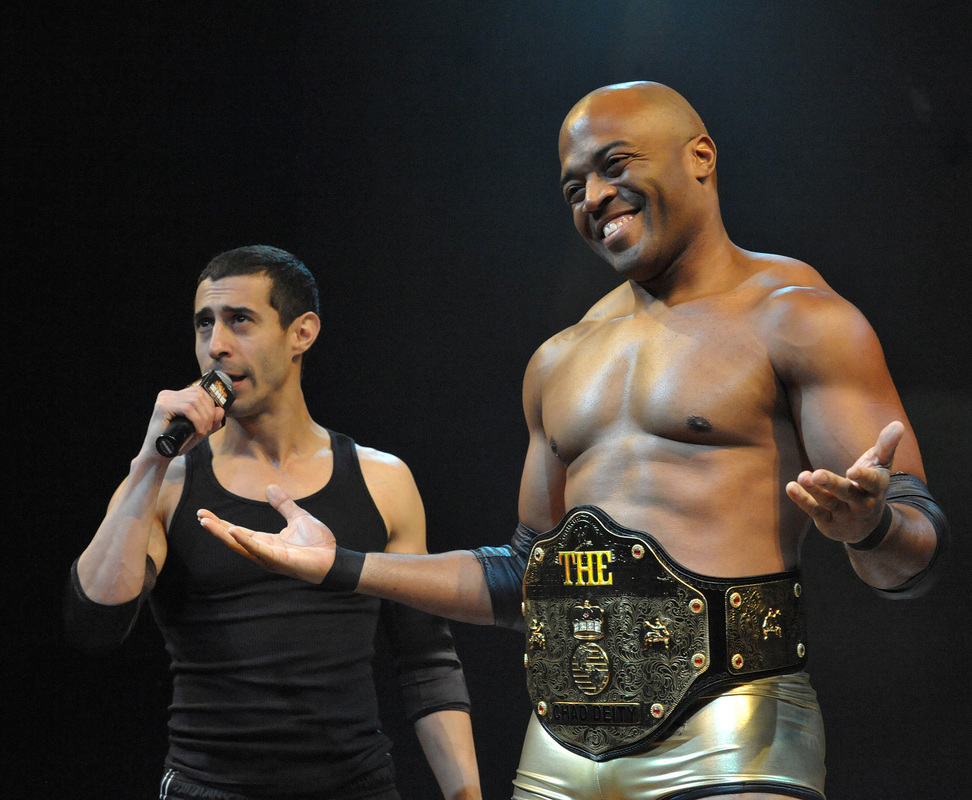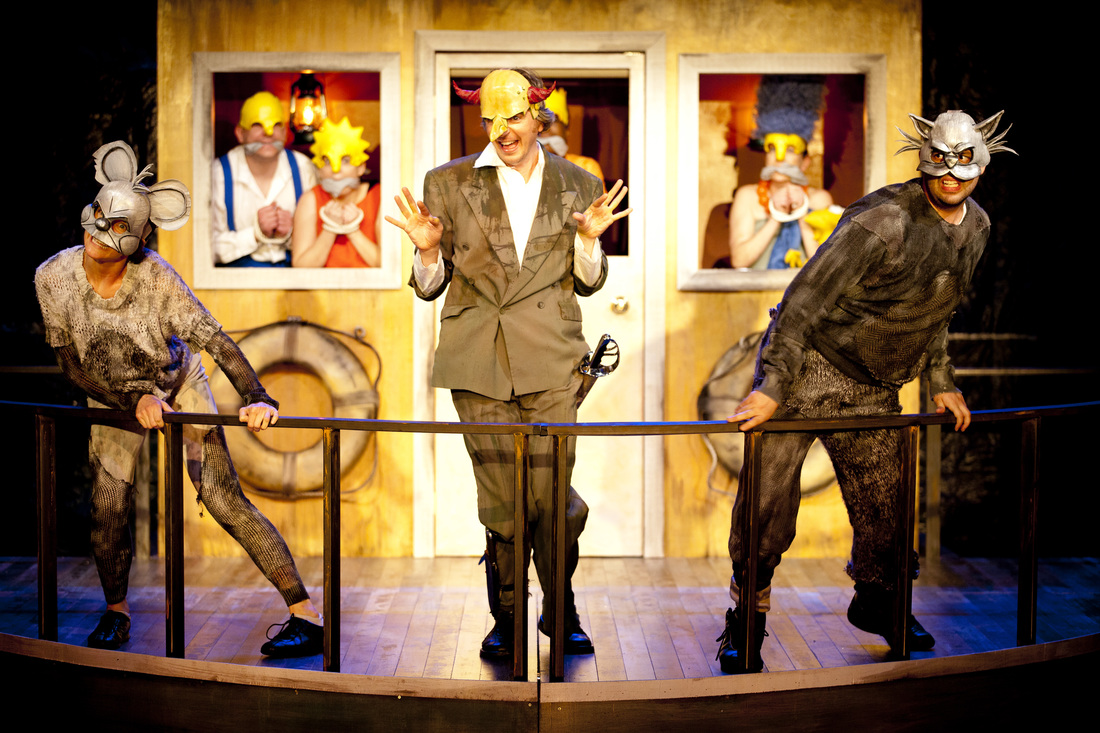|
JACQUELINE LAWTON: Why did you decide to get into theatre? Was there someone or a particular show that inspired you?
MIRIAM WEISFELD: In my senior year of high school, I was torn between art school and theatre school. I was about to register for classes at the Art Institute of Chicago, but I realized I would miss working with language. So I moved to Toronto for a conservatory program there. JL: How do you define dramaturgy? Or explain to people the work that you do? MW: Dramaturgy means asking questions: what’s the story you want to tell? How do you want to tell it? Why do you want to tell it here and now? JL: How long have you lived and worked as a dramaturg in DC? What brought you here? Why have you stayed? MW: I came to DC five years ago to take a job at Woolly Mammoth. I’d been working as a freelance dramaturg in New York, which was fantastic. But I was intrigued by the idea of making theatre in our political capital, and when I got the offer from Woolly I was thrilled. JL: If your work as a dramaturg doesn’t pay the bills, what else do you do? How do you balance this work with your dramaturgy? MW: I pinch myself every day that I can pay my bills now. When I was a freelancer I taught high school acting, wrote press releases for dance companies, answered phones in a box office, etc etc. (Box office work is an amazing education in audience behavior.) JL: What skills and traits do you feel a successful dramaturg should have to support the development of a new play or a production? MW: A solid understanding of as many things as humanly possible, but especially: acting theory, dramatic structure, group dynamics, and human foibles. JL: What is the greatest part of being a dramaturg? What has been your most difficult challenge? MW: Being constantly challenged is the best part of being a dramaturg. Each new project means navigating a new combination of personalities, form, and subject-matter—that’s where the joy lies. It’s the struggle to earn a living that’s hard. JL: Who are your favorite playwrights? What is it about their work that inspires or draws you to them? MW: Beckett. The simple way he captures human absurdity just gets me every time. JL: DC audiences are ... MW: Voraciously curious and bracingly smart. Each time I lead a post-show discussion I know the audience will school me about the content of the work. But they’re not always so confident talking about the form of a new work. Aesthetics are not at the center of DC’s civic life. But the democratic process demands a multiplicity of perspectives and an appreciation for disrupting our habitual ways of thinking—that’s why I believe we need to get more art up in Washington’s daily business. JL: DC actors, designers and directors are .. MW: Really fun to drink with. JL: DC playwrights are … MW: Equally fun to drink with. JL: DC critics are ... MW: I have yet to drink with DC critics. (Does that make me less cool, or more professional?) JL: How do you feel the DC theatre community has addressed the issues of race and gender parity? How has this particular issue impacted you and your ability to get your work produced on the main stages? MW: I think at the root of this question is the tension between a non-profit theatre’s explicit mandate to pursue its artistic mission, and the implicit mandate to proportionally represent the diversity of its community. Only artistic directors can decide whether those mandates are at odds with one another. But we can all advocate, advise, and agitate. And we should. JL: What advice do you have for an up and coming DC based dramaturg who has just moved to D.C.? MW: Find the people doing the work you find most illuminating, and offer to help. Everyone needs help, and it’s the best way to get your foot in the door. JL: What's next for you? Where can we keep up with your work? MW: In addition to developing several plays at Woolly, I’m working on a chapter for the next edition of the Routledge Companion to Dramaturgy. It’s about lobby displays, and it will likely include some shout-outs to DC artists.
0 Comments
Your comment will be posted after it is approved.
Leave a Reply. |
My BlogI'm a playwright, dramaturg, and teaching artist. It is here where you'll find my queries and musings on life, theater and the world. My posts advocate for diversity, inclusion, and equity in the American Theatre and updates on my own work. Please enjoy!
Categories
All
Archives
June 2020
Reading List
|



